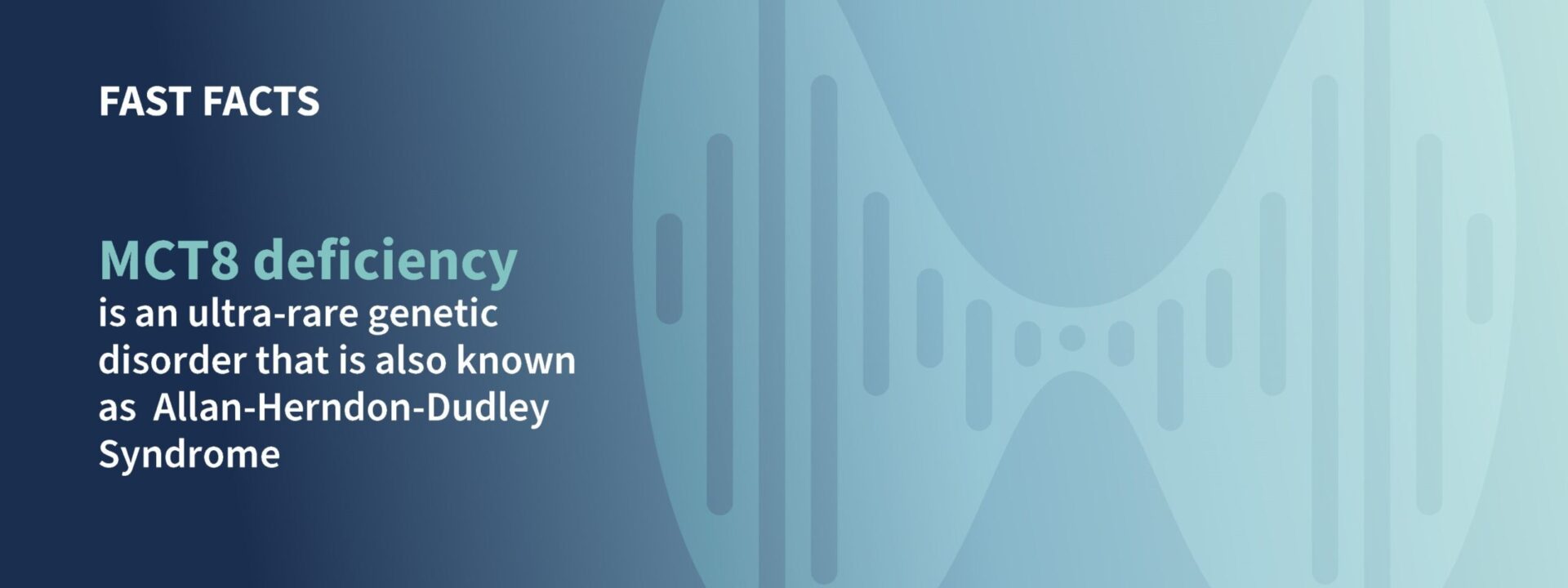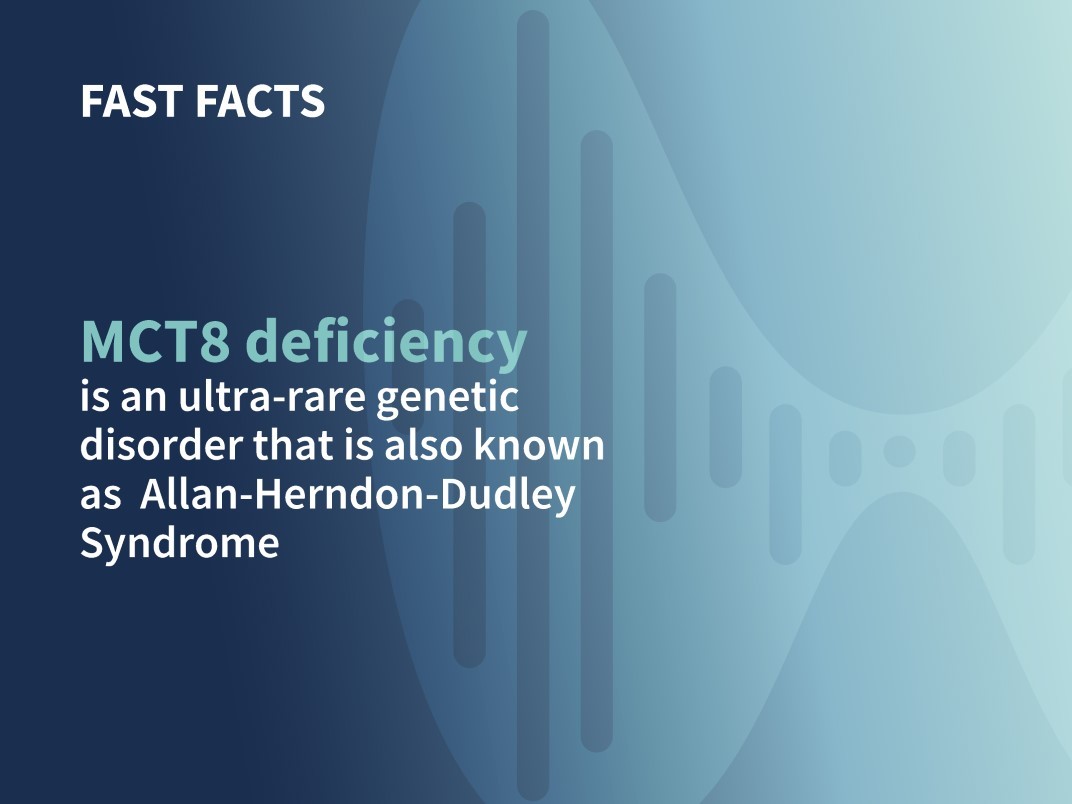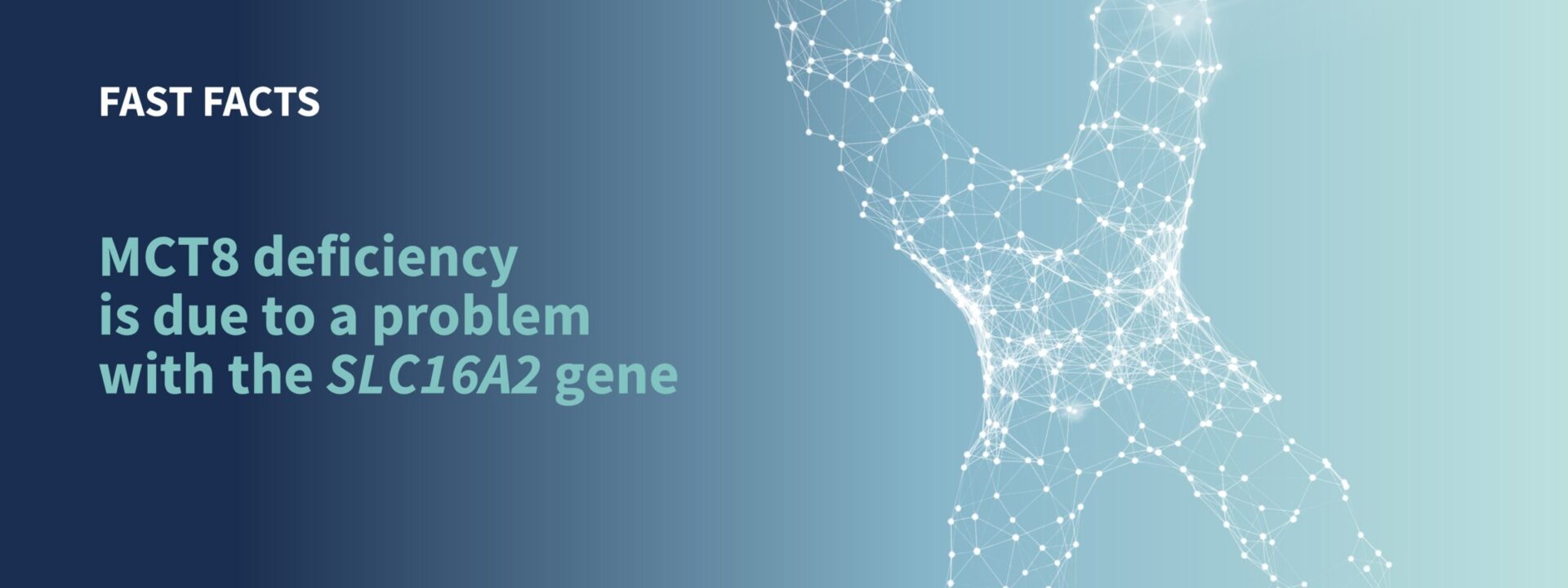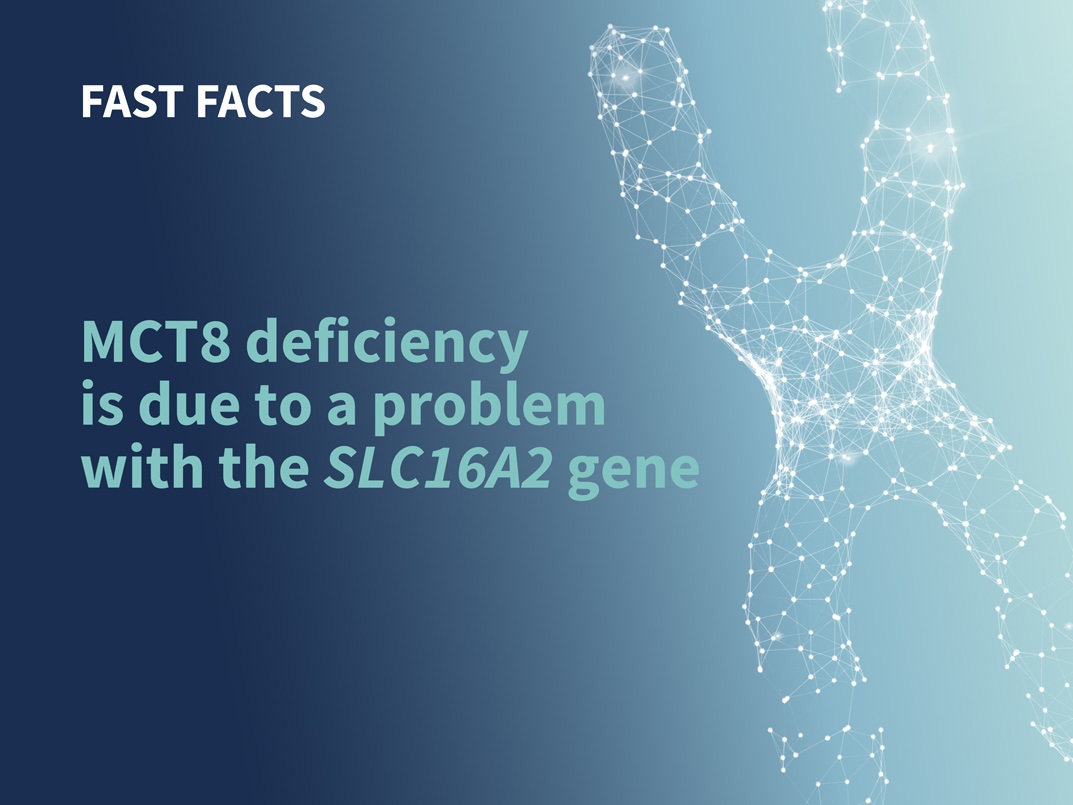ABOUT
MCT8 DEFICIENCY

ABOUT MCT8 DEFICIENCY
MCT8 deficiency, also called Allan-Herndon-Dudley Syndrome, is an ultra-rare, genetic disorder.
People with MCT8 deficiency have a genetic mutation leading to a dysfunction of the monocarboxylate transporter 8, or MCT8. MCT8 helps transport thyroid hormone in and out of cells throughout the body. This includes transporting the thyroid hormone T3 into the brain. Dysfunctional MCT8 can lead to multiple symptoms. Watch the video to find out more about MCT8 deficiency and how it affects the body.


SYMPTOMS OF MCT8 DEFICIENCY
Everyone born with MCT8 deficiency is different, but there are some common symptoms that affect most people with the condition. These symptoms can be divided into 2 types: neurological symptoms and endocrinological symptoms.

DIAGNOSING MCT8 DEFICIENCY
Like many rare diseases, MCT8 deficiency can be hard to diagnose. But thyroid hormone testing that includes T3 assessment can indicate an MCT8 deficiency diagnosis, and this can be confirmed with genetic testing.







